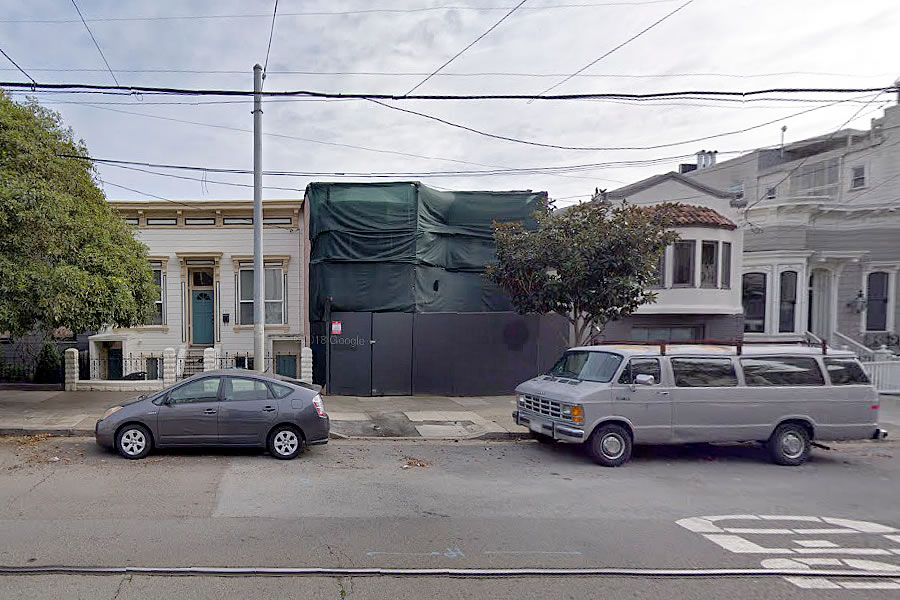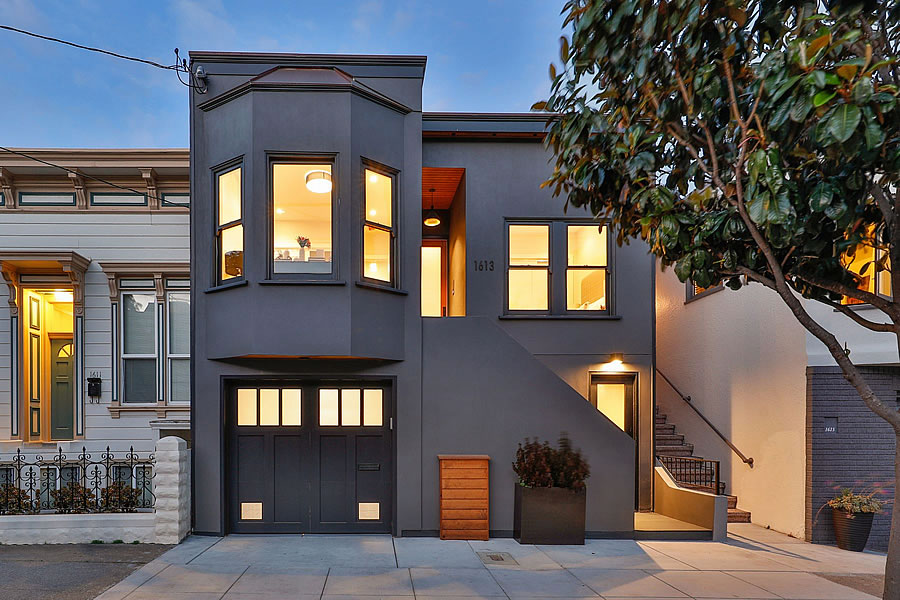Having been accused of routinely engaging in the under-permitted renovation and expansion of residential properties throughout San Francisco, Ashok Gujral, a local real estate developer, has agreed to pay $1.2 million to settle with the City.
In addition to the cash settlement, Gujral has been required “to bring all of his properties in line with land-use laws, including paying an additional $83,000 for proper permits,” and “agreed to a court-sanctioned order with notice, inspection and quarterly reporting requirements” for any properties he or his wife own in San Francisco. But the settlement did not include any admission of liability or forfeiture of any properties.
According to City Attorney Dennis Herrera, “it’s game over for house flippers who thought they could ignore the rules in San Francisco,” noting that “unscrupulous developers trying to make a quick buck by flouting the law increase safety risks, endanger the character of our neighborhoods and cheat honest developers by creating an uneven playing field.”
Gujral purchased seven residential properties in San Francisco between June of 2015 and September of 2016. And shortly after each purchase, Gujral would seek permits for simple projects, such as a kitchen remodel or plumbing work, but subsequently engage in work beyond the scope of the permits, evading Planning oversight, fees and required approvals.
For example, while the Noe Valley home at 1613 Church Street, which Gujral purchased for $1.46 million in March of 2016, was simply permitted for an “interior” remodel, the resultant work included both vertical and horizontal additions, not to mention a new roof deck.
And having hit the market listed for $4.395 million earlier this year, but subsequently reduced to $4.085 million, the now five-bedroom “joy on the roof” home is currently in contract to be sold.


I haven’t done the math but it looks like in San Francisco, crime pays! If he spent $1 Million renovating 1613 Church Street, he still made $1.5 Million on that one property.
Do you get to write off settlement payments?
Theoretically he could write it off as a development cost. IRS might protest but it would be worth a try.
No, he cannot. Penalties are not deductible under the tax code. The guy likes to break the law, so he can certainly try to violate tax laws, too. However, if he gets audited (and the chances increase when you claim large business deductions), then he will not only owe the additional tax due, but the IRS (and FTB) will assess penalties and interest.
It’s more complicated than that.
How of that was simple market appreciation? I.e. would it have gone up the same amount had they not renovated?
Well, considering it was purchased as a two-bedroom, one-bath “fixer” in rather rough shape…
Flipping should be more heavily taxed or be made illegal. It is basically taking housing that would be normally “affordable” and making certain that it isn’t even close to affordable when it comes back on the market. These people are parasitic.
That’s a little too black-and-white. There’s nothing wrong with taking a run-down home and fixing it up for a profit. Without flippers, much of our housing stock would eventually degrade until it became uninhabitable. The problem is our crazy housing market, where flippers have every incentive to try to turn every home into a luxury mansion.
that looks like a cell phone
“Without flippers, much of our housing stock would eventually degrade until it became uninhabitable.”
I’m not certain how you were raised, but this is one of the least intelligent statements I have EVER heard.
Not defending this violation, but I suspect that you have never rehabbed a house. The average homeowner cannot fathom addressing new plumbing, new electrical, seismic, dry rot, roofing, etc and those who choose to “flip” properties are, in theory, providing a service.
Are you implying that every flipper is a conscientious rehabilitator of SFH’s? Many flippers ignore major plumbing, electrical and roofing issues with a home and concentrate on putting in new appliances, flooring and counterops, most of the time with a new paint color, in order to make a quick buck and hope that the buyers doesn’t realize what they are in for until years after the sale.
Conversely, I have rehabbed a two unit Edwardian built in 1907 over the last 20 years. I have started and stopped several times for the sake of timing, nuisance and funding. I have occupied the building during the entire process and it is my only residence. Things I couldn’t do myself I hired a GC or subs, or handyfolk to perform. During the course of the rehabilitation of the building the entire electrical system has been replaced as well as all domestic water supply piping. Flippers are not providing a service other than inflating a property’s value beyond the reach of the middle class with trendy superficial upgrades and only the minimum code / fire / life safety considerations.
I guess we can all tell what side you are on.
To me ‘flip’ means ‘cosmetic fixes only all done within 1-2 months and resell’. The problem is that putting in new plumbing, electrical, seismic retrofit, etc. are mostly not visible to a house buyer and are therefore just a money loser for the seller – only the wolf stove, the new glass shower door, and a new coat of paint, etc. are visible and these take relatively little effort and usually no permits.
Sellers are not required to upgrade to new code (just very limited situations like CO detectors or fire place disabling), so it basically makes flippers want to make it only just good enough to get the sale. Sure they list all the known issues in disclosures which stressed-out-glassy-eyed-buyers are afraid to read or they might miss out on their ‘forever home’ (please I want to smack people each time I hear that, it’s supposed to be a place for adopted pets, who, by the way care absolutely zero about your wolf stove)…
There are not “sides” with respect to rehabbing housing. I, too, have rehabbed an Edwardian duplex in SF and if I were to choose to sell, I would likely make a profit above and beyond the profit I would have made had I let the building continue to deteriorate.
That said, I have seen plenty of well done, down to the studs, remodels of buildings that were in horrible shape. These have then been sold to new owners who are happy to avoid the pain of rehabbing the housing. Likewise, I’ve seen plenty of substandard “lipstick on a pig” remodels that didn’t improve the housing in the slightest and even degraded the product. That’s why I referenced that flippers “in theory” are providing a service. It’s not black and white.
another thing is that prop 13 incentivizes people to stay put and remodel to keep their tax rate more manageable. It’s a lot cheaper to remodel than it is to cash out any equity and trade up.
That could result in fewer and fewer starter homes as people enlarge. These are also precisely the units of housing that developers are not building right now probably due to higher profit margins on luxury units.
Did you see the before pictures?! Someone needed to clean up that house. Not every homebuyer is equipped to do their own improvements. San Francisco doesn’t green light new housing at a sustainable rate to keep housing costs down. Flipping will happen so long as there is short supply of new product for the market, but permit avoidance of this type is dangerous and insane. What was his exit strategy at sale?! Unpermitted renovations are kind of the #1 disclosure.
What exactly are the rules governing disclosure for real estate purchases? Can you sell a property “as is”, to circumvent disclosure requirements (and any liability after the sale)?
In short, no. And simply checking the “don’t know” box on a required disclosure form, or coyly “missing it” altogether, isn’t a legal out.
They provide an essential service to rehabilitate dilapidated properties which no inexperienced homeowner should consider unless they’re interested in risking their sanity and/or marriage.
If these lots were zoned for 3-4 apartments or condos and the permit process for new housing didn’t involve going through the neighborhood benefits extortion ringer, you would see a lot fewer opulent single family homes and more land use conversions to higher density. That’s not the flipper’s fault; what you want has been made practically illegal.
What exactly would you make illegal? Anyone can buy a house and improve it and then resell it. Lots of luck trying to make that illegal, you would face many legal and political obstacles.
In the real world, what IS illegal is evading paying permit fees or performing construction work without a permit, which is what gots this particular developer in trouble.
Ashok has a house next to me he has been working on for 3 years, with permit violations, but is not in this suit. It really sucks to be a neighbor to all this.
Good to see enforcement of the rules with actual financial damages.
Most developers stay within the lines and do what is asked, however onerous.
The fine should be bigger than the reward….